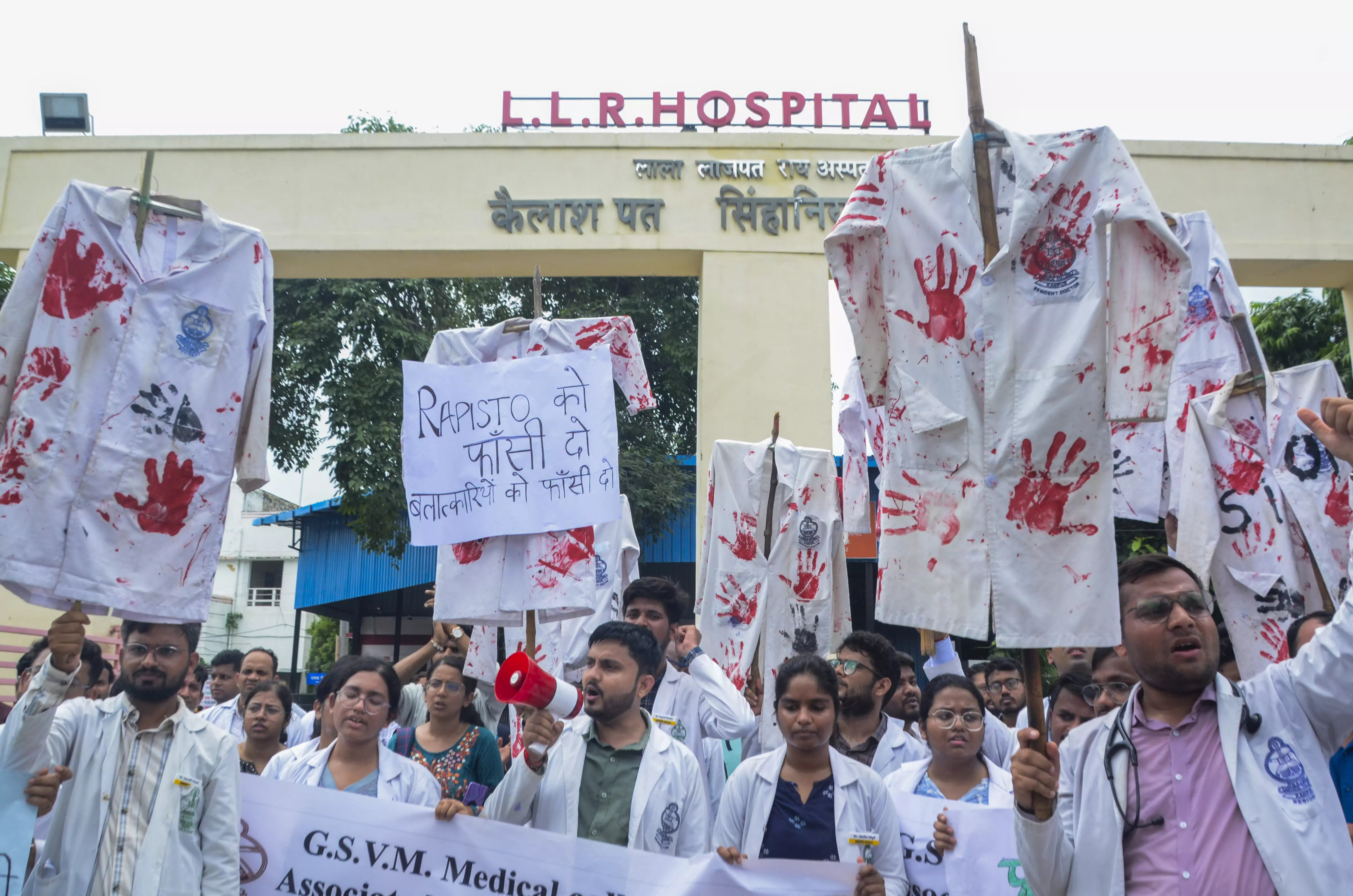
Kolkata rape-murder fallout: Centre orders govt hospitals to enhance security
The Centre's letter called for a comprehensive approach to security that balances accessibility with effective measures to protect patients, staff and facility

The Central government has strongly urged all its hospitals and medical institutes to implement wide-ranging security measures to ensure the safety of healthcare workers including doctors.
In the wake of a rape-cum-murder at a Kolkata hospital, the health and family welfare ministry noted that the government hospitals were more permeable to the public, making it easier for unauthorised people to enter their premises freely.
While accessibility is important for providing care, it can also pose security risks, a letter from the ministry to the heads of Central government hospitals and other medical institutions said.
Enhance security
“Hospitals sometimes become targeted by acts of violence, including assault on staff, which can be related to disputes, dissatisfaction with medical care, or external criminal activities. Ensuring the safety of healthcare professionals is vital," it said.
The communication called for a comprehensive approach to security that balances accessibility with effective measures to protect patients, staff and the integrity of the facility.
The letter called for setting up a sufficient number of high-resolution close circuit television (CCTV) cameras at strategic locations, particularly in entrances, exits, corridors, dark spots and sensitive areas.
Control room, ID badges
It told the institutions to set up a control room to provide quick response in emergencies besides the employment of well-trained security staff.
Identification badges for staff, patients and visitors should be issued and their display while on duty should be made mandatory, he said.
The letter sought training for all hospital staff, including doctors and nurses, in recognising and responding to security threats.“They should be equipped with appropriate skills to handle emergencies effectively.”
The letter added: "An adequate number of well-secured duty rooms with basic amenities should be provided for female health professionals. Deployment of lady health professionals at night should be preferably done in more than one number.

